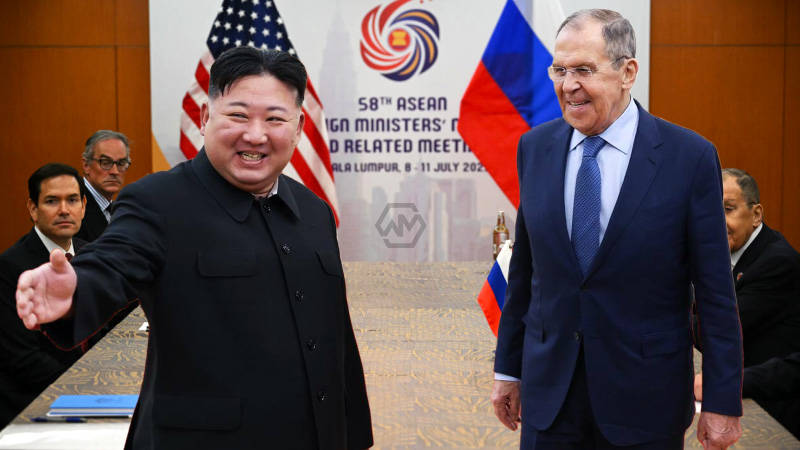- Russian Foreign Minister Sergei Lavrov begins a rare diplomatic visit to North Korea.
- The visit marks continued efforts to solidify ties between the two isolated nations.
- Lavrov will proceed to China for the SCO summit following his North Korea trip.
Russian Foreign Minister Sergei Lavrov arrived in Wonsan, North Korea, on July 11 for a working visit scheduled to last until July 13. The trip is part of a broader diplomatic engagement between Moscow and Pyongyang, reflecting a notable shift in Russia’s outreach to Asia amid growing global isolation.
This visit comes against the backdrop of increasing Western sanctions on both Russia and North Korea. By tightening ties, both nations are positioning themselves as strategic partners in challenging the existing global order.
Lavrov’s North Korea Visit Signals Strategic Realignment in Asia
Lavrov’s arrival in Wonsan is significant due to the port city’s limited use for international diplomatic arrivals, hinting at the confidential nature of the engagements. While exact details of the agenda remain under wraps, the meeting is expected to focus on security cooperation, trade routes, and technology exchange—areas of mutual interest for two nations heavily sanctioned by the West.
The diplomatic encounter comes amid heightened concern from Washington and its allies over potential arms deals between Russia and North Korea, particularly in light of the Ukraine conflict. Western intelligence agencies have warned of increased military collaboration, including North Korean supplies of artillery shells and ballistic missiles to Russia.
Beyond military considerations, economic cooperation is also likely to be a focal point. North Korea seeks investment, fuel, and technological support, while Russia is looking for alternative markets and logistical partnerships in Asia. The visit offers both parties a rare chance to showcase unity and resilience in the face of mounting external pressure.
Lavrov’s subsequent attendance at the SCO summit in China signals a coordinated diplomatic push across Northeast Asia. Russia, China, and North Korea—each facing varying degrees of Western opposition—are increasingly aligning their strategic narratives. Lavrov’s movements underline a broader Eurasian agenda that seeks to counterbalance Western alliances such as NATO and the G7.
Lavrov’s visit to North Korea is more than symbolic—it reflects a shifting geopolitical landscape where traditional alliances are being challenged and new ones are quietly forming in the East.
“In the midst of chaos, there is also opportunity.” — Sun Tzu
This visit exemplifies how geopolitical turmoil creates new avenues for cooperation among isolated states.



